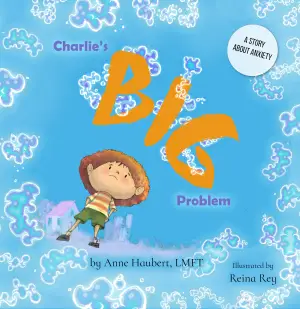Review of Halfway to Somewhere by Amiee F. W.
There’s something about a good coming-of-age story that draws me in, particularly when it peels back the layers of identity and belonging so intricately. I’m always on the lookout for narratives that explore the nuances of cultural transitions, and when I stumbled upon Halfway to Somewhere by Amiee F. W., I knew I was in for a heartfelt journey. Full disclosure: I received a free e-ARC for review through NetGalley, and while I rated it 3.5 stars (rounded up to a solid 4), it’s left me with much to ponder.
At its core, Halfway to Somewhere follows twelve-year-old Ave and their younger brother, Ramón, as they navigate a life-altering move from Mexicali, Mexico to Lawrence, Kansas. The story quickly establishes its bittersweet premise: while their mother embarks on a new teaching job at KU, Ave and Ramón are forced to leave their father and older sister Cruz behind. This "trial" separation unveils itself as a permanent rift, a revelation that weighs heavy on Ave’s shoulders.
What struck me was how relatable Ave’s struggle for identity felt, especially as they battled with a sense of alienation. I found it heart-wrenching—and all too relatable—how Ramón adapts easily, finding friends before the moving truck is even unloaded, while Ave grapples with their “broken” English and fears of losing their cultural roots. The contrast between the two siblings paints a vivid picture of the complexities of assimilation.
One of my favorite elements was Ave’s solace in traversing the KU campus and surrounding neighborhoods. Walking, as a metaphor for finding one’s path, resonated with me deeply. That sense of wandering in search of place—both in a physical and emotional sense—was beautifully captured, and Amiee F. W.’s writing style flows effortlessly, drawing you into Ave’s internal battles. The conversations Ave shares with their newfound friends, especially regarding what makes a person “Mexican enough,” elevate the narrative, offering insightful reflections on identity and cultural belonging.
Yet, as much as I enjoyed the camaraderie between Ave, the Mexican-American Rene, Latinx Mara, and comic-loving Dani, I couldn’t help but feel uncomfortable about certain parenting decisions throughout the book. The dynamics within the family—especially concerning Cruz stepping into an overly domesticated role while Ramón escapes household chores—felt unresolved. I found myself questioning the choices made by Ave and Ramón’s mother: like many readers, I’m not entirely on board with the "keeping secrets from your kids to facilitate a major life change" approach. These threads lingered in my mind, casting a shade over what could have been an otherwise seamless exploration of family dynamics.
Despite some nuances that left me pondering, Halfway to Somewhere is a compelling read that masterfully showcases the struggle of a young person transitioning between identities and cultures. I can envision this book resonating with tweens and teens grappling with their own multicultural experiences, as well as parents who may find themselves reflecting on their own parenting choices amid such transitions.
Ultimately, Amiee F. W. delivers a poignant exploration of language, identity, and family musings, all while reminding us how vital it is to carve out space for ourselves as we journey through new terrains. This book has left a mark on me, enhancing my appreciation for the dexterity with which young readers can navigate these profound themes.


















